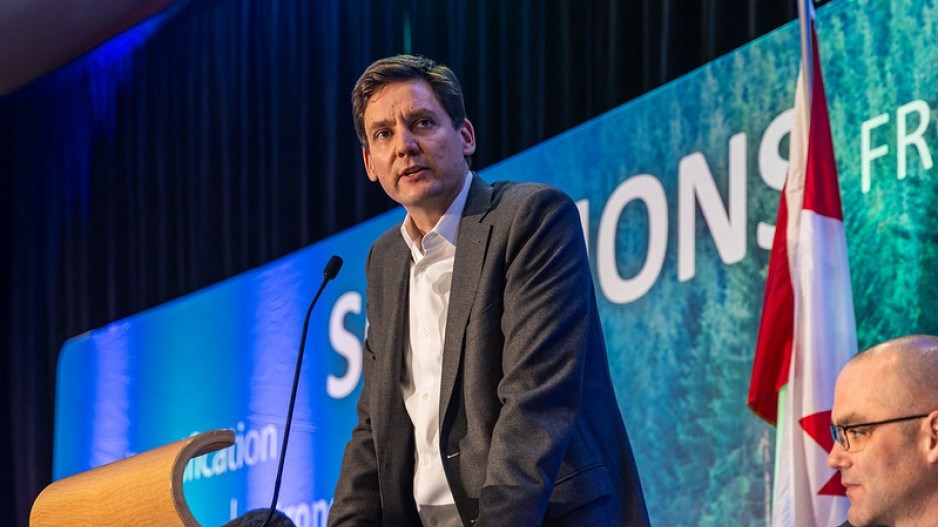What does Premier David Eby’s strong support for the natural resources sector this past month mean for this election year?
The lived experience of British Columbians is at the heart of where people park their votes – and as it currently stands, skyrocketing interest rates and the high cost of living are putting pressure on everyday British Columbians not seen since the 1980s.
Families across the province are deciding between heat and food on a daily basis, strong family income earners are selling their houses at a loss because their mortgage payments are too high, parents are waiting double-digit hours to get their kids’ ear infections treated and the stress of unstable geo-political realities are only compounding matters. The reality of a declining resource sector for the public purse at this critical time is substantial, but publicly reinforcing the link between a strong economy and the ability to deliver on needed services is often left out of the political narrative.
Eby set out a revised message to the natural resources sector at the BC Natural Resources Forum in Prince George this month, stating that “everyone in this room, every British Columbian, shares a stake in ensuring that this sector is successful and drives our prosperity in the future.” This is a significant departure from his tone up to now, which was publicly critical of the natural resources sector, calling it out for inadequate industry leadership and investment in climate-aligned solutions. The question now is: Will he take the same message to the rest of the province, including areas where support for the sector could be described as contentious at best?
Under his leadership, the province has accelerated targets for sectoral emissions reductions and assertively progressed multiple environmental and regulatory reform processes – much of which will not be completed without proper co-development with First Nations rights and title holders. This takes time – and it should – because it has to be done in alignment with the provincial Declaration on the Rights of Indigenous People’s Act (DRIPA). There is no fast-tracked process that can supersede proper consultation – the layers of regulatory change are substantial and have had direct impact on revenues across the natural resource sector in B.C.
Eby’s efforts push government and the public service towards transformative change have created increasingly complex relationships between his government, local municipalities and resource sector leaders. His vision asserts that these changes and a climate-focused economic plan will create a predictable and competitive investment environment that will attract global ESG-aligned dollars.
Integral to his economic approach is the electrification of the province. Eby announced approximately $36 billion for BC Hydro to build out much-needed transmission line infrastructure and re-announced the independent call for power. The announcement was well received, but industry also expressed frustration at the lack of critical infrastructure investments to decarbonize and electrify resource sector projects since the BC NDP took power in 2017.
Forestry and mining were also tapped by the premier as significant economic drivers for the province. The highly contentious old growth file, alongside the challenging work to build more sustainable forests in light of wildfires and global markets continue to impact the sector. It was not long ago that Eby asserted that unless the sector gets in line with DRIPA and the province’s ecosystem health agenda then he would step in and require them to do so. At the forum this month, he pivoted, stating: “Forestry has always been and will be a key driver of prosperity” for the province. He also committed to releasing the long-awaited provincial critical minerals strategy “very soon.”
While the crowd welcomed Eby’s support, what remains to be seen is whether he will continue to assert his and government’s support for the natural resources sector outside of Prince George and Northern B.C. It is expected that Eby and his caucus will be hustling their Lower Mainland stronghold ahead of the election with announcements and engagements that feature aggressive climate policy and accelerated decarbonization. The opportunity now is to build greater provincial literacy on the relationship between resource sector revenue and the ability to deliver on key public services from government. It’s unclear how Eby will square these potentially conflicting circles across regions.
Katie Shaw is a principal at Earnscliffe Strategies.




